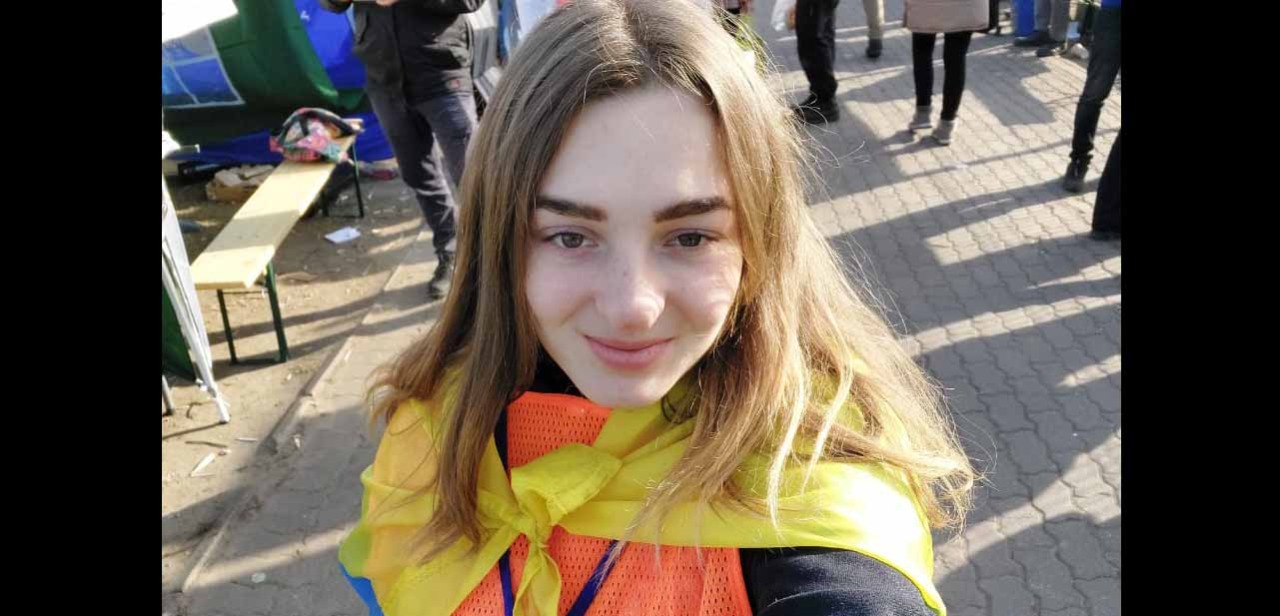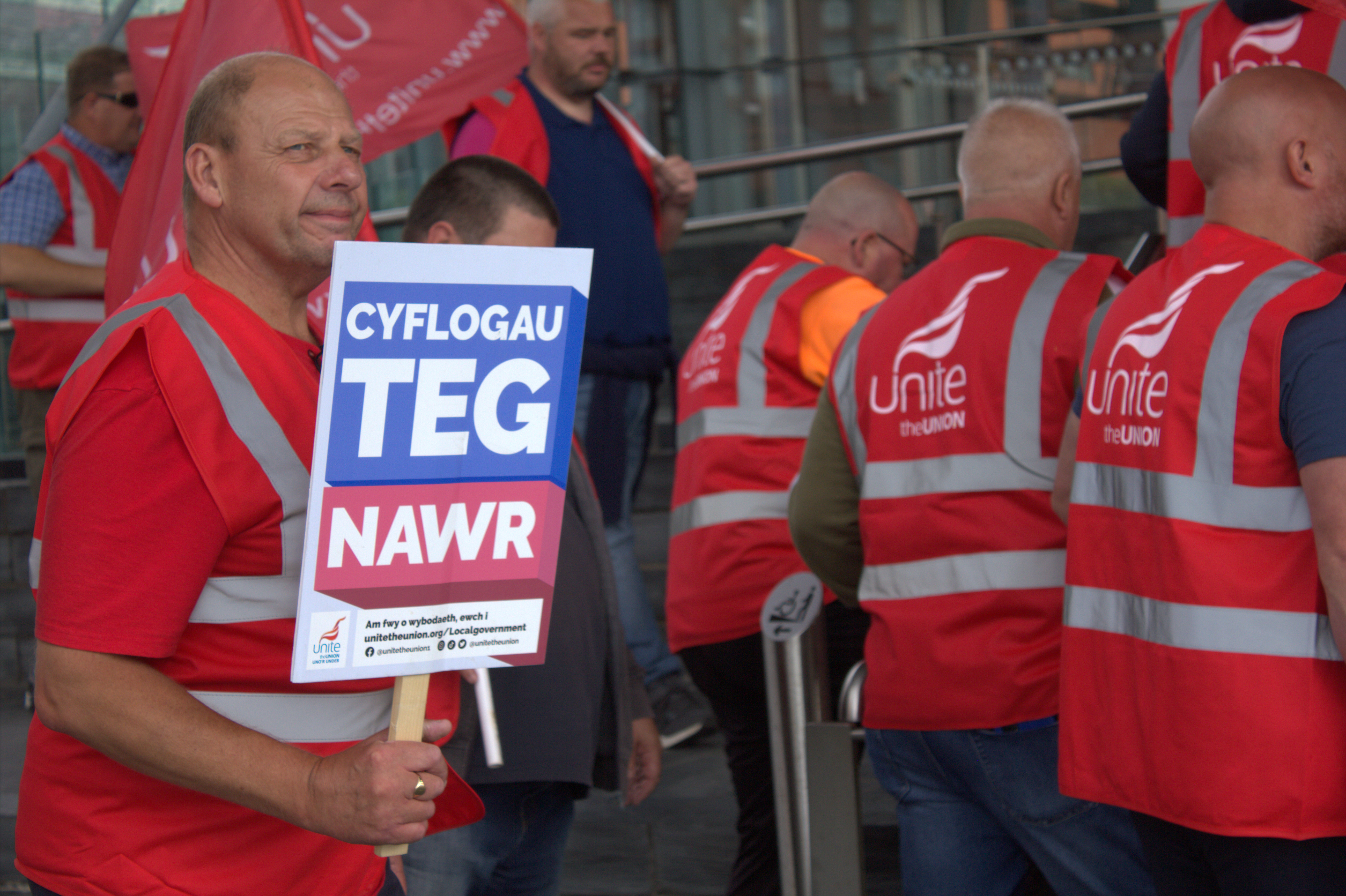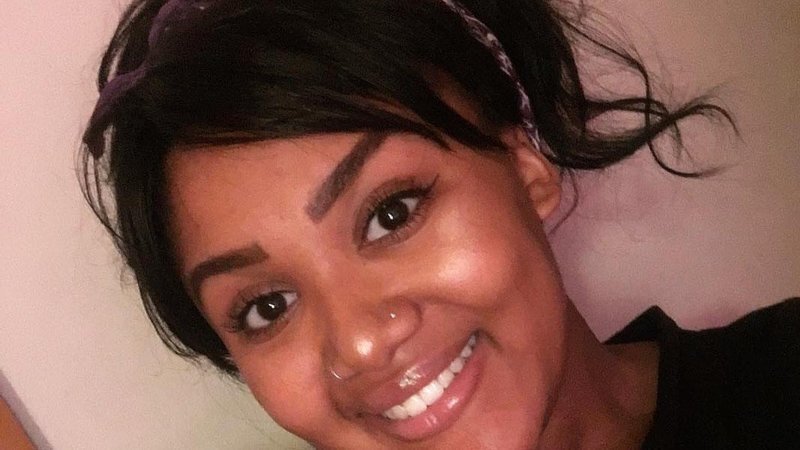
Ukraine: I Fled Donetsk And That’s Why I’m An Aid Worker On The Polish Border
Mark Redfern travelled to the Ukrainian Polish border where he met a refugee who had fled her home in Eastern Ukraine only to resettle and quickly get to work helping others.
Ukraine is her home and the refugees are her people, first and foremost. Kateryna Bosiachenko, 20, arrived in the eastern Ukrainian city of Lviv just a few days after the Russian invasion of Ukraine and the outbreak of war. Although she’s escaped the danger of the front line, she’s not going to cross over into Poland for good.
Kateryna arrived in Lviv in late February after fleeing her home in Kharkiv. “Russian soldiers were really near and my father said just leave and go to Lviv. I’m an active citizen and I translate, I’m not afraid to say my opinion.”
“That’s why my father was scared about my involvement [in public life], because Russian soldiers can find my social media. They could kill me or do something worse.”
Her exit was swift. “My father said I should leave in the morning. I took my backpack and left my family back in the Kharkiv region, going to Lviv alone. Then after five days my family left the city too.”
“I’m really afraid for my boyfriend,” Kateryna told voice.wales. “He wants to fight but our army doesn’t want to take anyone without any experience.”
The two had been separated by the war when he stayed behind in Sloboshanske, Kharkiv ,where they had been living at the time Russian troops entered Ukraine. Since then, he has been working to help local families suffering on the eastern front.
What are Kateryna’s thoughts on the war?
Perhaps unsurprisingly, there seems to be no love between the Ukrainians and Russians at present. “It’s a simple question,” she says. “Because I think all Ukrainians hate the Russians. So many Russian soldiers and people who live in Russia hate us… Russia is a country that wants to capture many more countries. Because, for me, war started eight years ago.”
The 2014 warring over the south-east territory of Donetsk was the first time Kateryna had to flee armed conflict. Russian-backed separatists and Ukrainian government forces fought for control over the region, leading to intense shelling and open air conflict. At the time, Kateryna was forced to leave her hometown of Debaltseve where she had spent the first thirteen years of her childhood.
“I spent a big part of my life under war, but I don’t feel sorry about it because it’s my life and I’m happy. But I understand that we’ve been fighting Russia all my life. Of course, I hate this country [Russia]. We have some connection with culture but they come through the Russian border to make us slaves… Russian soldiers came to my home. I have reasons for this hate and I’m not sorry about it.”
Kateryna matches the nationalist zeal of any country engaged in a war in which they are forced to fight defensively against an occupying military. “Of course, war is bad because so many people die, but it will make us a stronger nation. Sometimes I justify the war because when the war finishes we will understand who is our enemy.”
“Nato is afraid of Russia. If everyone is afraid then Russia has more power, and no country should be afraid of Russia. Nato too,” said Kateryna. In desperation, the refugee-turned-aid worker is looking to Nato as a military alliance that might be able to take on the Russian army. “They [NATO] can close the sky but they can also give us so many weapons.”
Her thoughts are no doubt matched by that of many Ukrainians looking for an end to the war in any way possible.
It is a mood that is being cheered on in the corridors of power in the West, however, not with the aim of ending the war but of prolonging it in pursuit of their own geo-political interests, and with little care for the lives of Kateryna and other ordinary Ukrainians. When Western leaders say ‘arm Ukraine,’ they are asking others to die, not them.
For Kateryna and many more like her, there is little option other than to help those whose lives have been torn apart by war.
“It was hard to understand the second time when I had to move to another region, but I prayed. It was really hard because I was very scared. But I also understand that I want to work and I want to be useful in Lviv and volunteer,” said Kateryna. “I have many friends who moved to Lviv and we help each other.”
One particularly useful skill is being able to translate for refugees trying to enter Poland. “Most people have never been abroad and they only know Ukrainian and Russian… I can solve difficult situations because there are so many people without documentation [trying to get across the border].”
Kateryna also mucked in with fielding donations on the busy refugee camp that has sprung up just yards away from the busy Medyka border checkpoint, from which voice.wales recently reported.
The chaos near the border is only being eased with the help of the hard-working volunteers. Aid workers have been pooling their skills to react to the unprecedented crisis. It’s going to be a long process to resettle those in sudden need.
Kateryna is determined to stay in her home country, even after becoming a refugee herself, to help those who have fled: “I want to support these people, I can say I am from the east and I can say I know how you feel… It’s really good work for me. I’m good with people, I like to help people. I am active, I am strong.”


